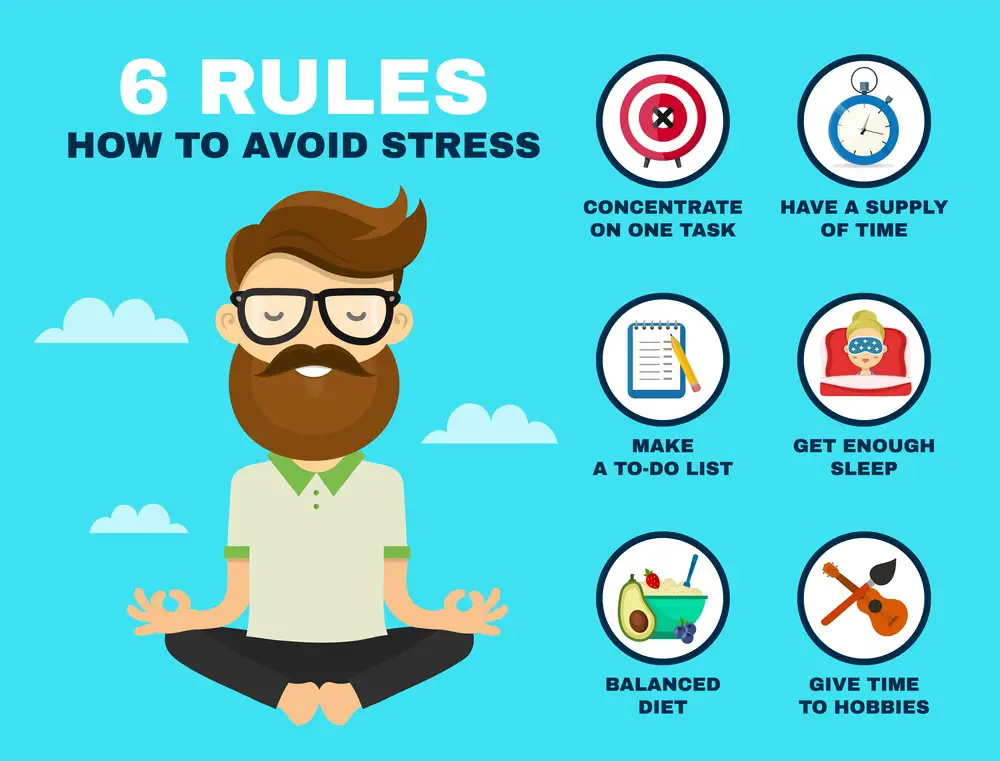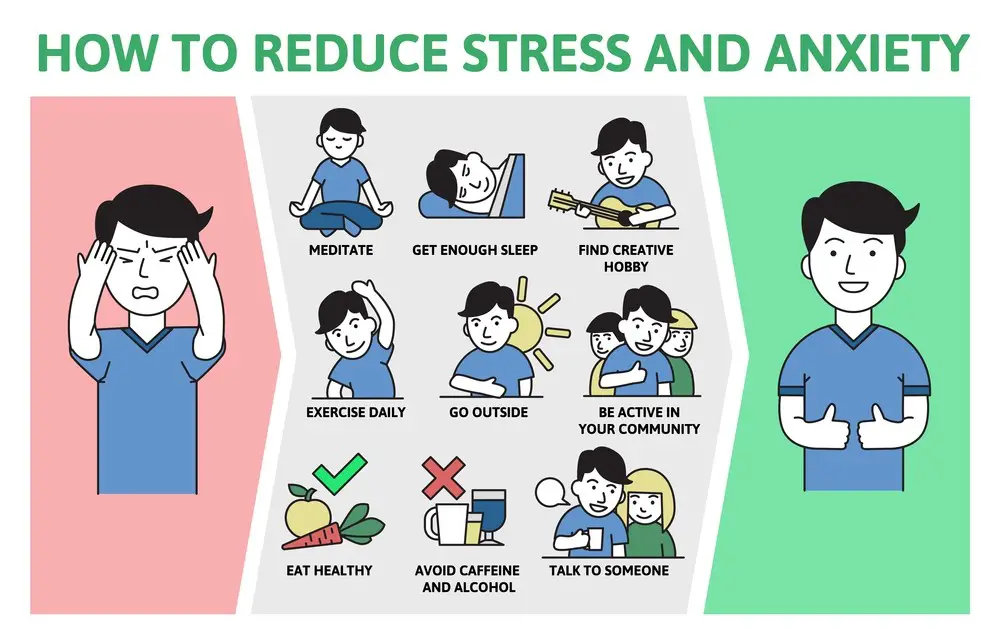As a BetterHelp affiliate, we receive compensation from BetterHelp if you purchase products or services through the links provided
The life of an entrepreneur is often romanticized, but in reality, it is filled with substantial stressors they experience daily. One main reason why entrepreneurs experience daily stress is the considerable responsibility they hold. From managing the business and handling finances to making decisions that affect employees and clients, entrepreneurs take on a lot all at once.
Uncertainty and instability are constant factors contributing to an entrepreneur’s daily stress. The market fluctuates, consumer behavior changes, competitors take unexpected actions, and global events can significantly impact even the most well-planned strategies. These volatile conditions put immense pressure on entrepreneurs, making it difficult to predict and navigate the future of their businesses.
As they strive for success, entrepreneurs must balance their work-life with personal well-being, which can cause stress. The need to prioritize multiple responsibilities and learn from mistakes, all while striving for growth and autonomy, can sometimes be overwhelming. Entrepreneurs must understand this stress and develop coping strategies, as it can significantly affect personal well-being and business success.
Key Takeaways
- Entrepreneurs experience daily stress due to the considerable responsibility of managing a business.
- Uncertainty and instability in the marketplace and external factors contribute to stress levels.
- Balancing work-life and personal well-being is crucial in how entrepreneurs deal with daily stress.
 Understanding Entrepreneurial Stress
Understanding Entrepreneurial Stress
As an entrepreneur, you’re likely no stranger to stress in your daily life. This can often come from various sources, but understanding why you experience this stress can help you better manage it and eventually find ways to reduce its impact.
One main reason entrepreneurs experience daily stress is the uncertainty and instability of running a business. Market fluctuations, changes in consumer behavior, competitors’ actions, and global events can all wrench even the most well-planned strategies. When you’re constantly faced with uncertainty, worry can set in, leading to chronic stress that takes a toll on your life.
Another factor contributing to entrepreneurial stress is the high level of responsibility and pressure to succeed. As the person in charge, you must make crucial decisions affecting your business and the people working there. Moreover, your personal and professional reputation is at stake, which can overwhelm the fear of failure.
Managing time effectively is also a significant challenge for entrepreneurs. Balancing personal life, work life, and managing a business can make it feel like there just aren’t enough hours in the day. This constant juggling can generate stress as you try to keep up with everything.
Furthermore, financial challenges present another stressor for entrepreneurs. Optimizing cash flow, seeking investors, and managing expenses are all integral parts of a business, but they can contribute to feelings of stress and pressure.
To deal with entrepreneurial stress, consider these tips:
- Embrace the uncertainty and learn to adapt to changes.
- Set realistic expectations and prioritize your tasks.
- Build a strong support system around you, both personally and professionally.
- Practice self-care and allocate time for yourself to relax and unwind.
Remember, stress is a normal part of entrepreneurial life. However, understanding the contributing factors and finding ways to manage these stressors can help you maintain a healthy balance and thrive in your business endeavors.
 Main Causes of Stress in Entrepreneurship
Main Causes of Stress in Entrepreneurship
Great Responsibility
As an entrepreneur, you are responsible for the success or failure of your business. You make decisions that impact your employees, clients, and investors. This huge responsibility takes a toll on you and causes stress. Juggling multiple roles and managing everyday tasks requires strategic thinking and time management skills. A key to overcoming this challenge is delegating tasks to your team, trusting them, and focusing on essential business aspects.
Financial Instability
A significant stressor for entrepreneurs is financial risk. Uncertain income, balancing expenses and revenue, and facing potential bankruptcy can make you anxious. Also, managing personal funds and dealing with investors add to the stress. To tackle this, create a realistic financial plan, allocate adequate resources, and consider seeking professional advice from financial experts.
Absence of Job Security
Entrepreneurs don’t have a fixed income or job security like traditional employees. Market fluctuations, changing consumer demands, and unpredictable circumstances can lead to stress. The best way to deal with this uncertainty is to remain flexible and adaptable and dedicate time to researching emerging trends in your industry.
Working Long Hours
A common issue in entrepreneurship is working long hours. This can strain your work-life balance and create physical and mental stress. To better manage your time, prioritize tasks, and set achievable goals. Incorporate regular breaks, allocate personal time, and practice self-care to ensure your well-being.
Perceived Isolation
Being an entrepreneur often means you work alone, leading to a sense of isolation. Networking with other entrepreneurs, joining support groups, and maintaining strong relationships with friends and family can help combat this feeling. Remember, connecting with others in similar situations fosters empathy and reduces stress.
High Levels of Competition
The competitive nature of the business world adds layers of stress to entrepreneurs. Staying updated on industry trends, adopting innovative approaches, and differentiating your offerings from competitors are valuable tactics. Collaborating with professionals within your industry can create new opportunities and alleviate the stress of competition.
By recognizing these leading causes of stress in entrepreneurship, you can develop strategies to manage and overcome the challenges you encounter on your journey.
 Signs of Stress and Burnout
Signs of Stress and Burnout
Experiencing daily stress as an entrepreneur is quite common, but it’s essential to recognize the signs before it leads to burnout. Burnout can affect your job satisfaction and potentially cause anxiety and other health-related issues.
One of the first signs of stress is irritability. You may find yourself snapping at those around you, even when they are trying to offer help. To avoid this, make a habit of taking breaks and practicing mindfulness to help calm your nerves.
Another vital sign to look out for is a decline in work performance. If your productivity is going downhill, it’s time to assess your workload and prioritize your tasks. Breaking more significant tasks into smaller, manageable chunks can alleviate some pressure.
Feeling detached from your work and team is another warning sign. If you notice that you’re no longer passionate about your work or hesitate to engage with your colleagues, addressing the issue is essential. Try reconnecting with your entrepreneurial vision and discussing your feelings openly with your team members.
Physical symptoms such as constant fatigue, difficulty sleeping, and frequent headaches might signal stress and potential burnout. Don’t ignore these symptoms – prioritize self-care activities like exercising, eating well, and engaging in hobbies outside work to maintain a healthy work-life balance.
In summary, keep an eye out for these signs of stress and burnout:
- Irritability
- Decreased productivity
- Detachment from work and colleagues
- Physical symptoms like fatigue and difficulty sleeping
By being mindful of these signs and taking action when needed, you can safeguard your mental and physical well-being, thus ensuring a more fulfilling entrepreneurial journey. Remember, balancing your professional and personal life is crucial to prevent stress from spiraling out of control.
 Impact of Stress on Personal Well-Being
Impact of Stress on Personal Well-Being
Entrepreneurs experience daily stress, which can significantly impact their well-being. This section will discuss stress’s effects on mental and physical health.
Effect on Mental Health
As an entrepreneur, stress can take a toll on your mental health. It’s common to deal with anxiety and depression due to the overwhelming workload, deadlines, and financial pressure. Furthermore, stress can impair cognitive function, making it difficult to make clear decisions and think creatively. Since personal and work life often overlap, stress from entrepreneurship can also negatively affect your relationships.
Here are some impacts of stress on mental health:
- Anxiety: Fears about the future, finances, and dealing with uncertainty in business
- Depression: Prolonged periods of stress can lead to feelings of hopelessness and low mood
- Cognitive function: Decreased ability to concentrate, remember, and make decisions
- Personal relationships: Higher stress levels can put a strain on interactions with loved ones
Key takeaway: Managing stress is essential to maintain your mental well-being as an entrepreneur.
 Effect on Physical Health
Effect on Physical Health
In addition to mental health, stress can also affect your physical well-being. When subjected to chronic stress, your body responds in various ways, leading to several health issues.
Here’s how stress can impact your physical health:
- High blood pressure: Stress increases heart rate and blood pressure, which, if persistent, can lead to serious health issues
- Muscle tension: During stressful periods, your muscles may tense up and leading to pain and discomfort
- Weakened immune system: Chronic stress can weaken the immune system, making you more susceptible to illnesses
- Sleep disturbance: Stressful thoughts and anxiety can lead to insomnia or poor-quality sleep
Key takeaway: Keeping stress under control is crucial for maintaining your overall mental and physical well-being as an entrepreneur.
Coping Strategies for Entrepreneurial Stress
Time Management and Work-Life Balance
One of the main reasons entrepreneurs experience daily stress is the feeling that there is never enough time in the day. To help you reduce stress, adopting effective time management strategies and establishing a work-life balance is essential. Here are some tips to get you started:
- Break down your projects into smaller tasks and prioritize them
- Set realistic goals and deadlines for yourself
- Delegate tasks when possible
- Establish boundaries between work and personal life
- Schedule time for relaxation and breaks throughout the day
Finding the right balance between work and personal life can significantly reduce your stress levels and prevent burnout.
 Practicing Mindfulness and Meditation
Practicing Mindfulness and Meditation
Practicing mindfulness and meditation can help entrepreneurs manage stress by cultivating a sense of presence and awareness. Focusing on the present moment can reduce anxiety tied to future uncertainties and learn to cope with daily stressors more effectively. Here are ways to incorporate mindfulness practices into your routine:
- Dedicate 10-15 minutes daily to meditation
- Use mindfulness apps or guided meditations to help you get started
- Practice mindful breathing exercises when you feel overwhelmed
- Engage in activities such as yoga, tai chi, or walking to bring mindfulness into your movement
Mindfulness practice reduces stress and enhances your overall well-being and focus, allowing you to tackle challenges with a clear mind.
Physical Exercise and Healthy Eating
Staying physically active and maintaining a healthy diet are crucial in managing entrepreneurial stress. Regular exercise releases endorphins, which can help uplift your mood and alleviate stress. A balanced, nutritious diet ensures your body receives the essential nutrients to function optimally. Try these tips to maintain a healthy lifestyle:
- Schedule at least 30 minutes of physical activity per day
- Choose exercises that you enjoy, such as swimming, hiking, or dancing
- Plan your meals to ensure a balanced, nutritious diet
- Try meal prepping in advance or using a meal delivery service to save time
Incorporating physical exercise and healthy eating habits into your daily routine will help you manage stress and boost your energy levels and overall well-being.
 The Influence of Stress on Business Success
The Influence of Stress on Business Success
Entrepreneurship can be exciting and rewarding but comes with its fair share of challenges. One significant challenge that many entrepreneurs face is daily stress. As you manage your business, stress might seem unavoidable. However, understanding how stress can impact the success of your business is essential to developing effective coping strategies.
First, it’s essential to recognize that stress can negatively affect decision-making abilities. When you’re under stress, your mind tends to focus on the immediate problem rather than considering long-term consequences. This can lead to impulsive decisions that may not be in the best interest of your business. By acknowledging the impact of stress on your decision-making process, you can learn to take a step back and approach challenges with a clear and composed mindset.
Second, stress can hinder your ability to maintain a healthy work-life balance. A successful entrepreneur must balance their personal life and their business. When you’re overwhelmed with daily stress, you may struggle to find time for yourself and your relationships outside of work. This can result in burnout, ultimately harming your well-being and your business’s success.
Here are a few tips to help you manage stress and improve your business’s success:
- Prioritize self-care: Ensure you’re allocating time for exercise, hobbies, and relaxation. Taking breaks can help you recharge and find clarity in your thoughts.
- Create a support system: Surround yourself with a network of friends, family, and fellow entrepreneurs who understand your challenges and can provide guidance or a listening ear when needed.
- Delegate tasks: No one can do everything alone. Learn to delegate tasks to your team members or outsource work when necessary so you can focus on the most critical aspects of your business.
Remember, the key takeaway is acknowledging stress’s role in your business success. By understanding its impact, you can develop strategies to effectively manage stress and enhance your decision-making abilities, ultimately driving your business towards better performance.
Importance of Personal Growth and Autonomy
As an entrepreneur, focusing on your personal growth and autonomy is crucial, as these factors play a significant role in your overall happiness and success. Putting in the effort to develop these aspects brings a sense of fulfillment and confidence, which helps reduce daily stress. Let’s examine why personal growth and autonomy matter to entrepreneurs.
Personal growth encompasses various aspects of your life: time management, communication, emotional intelligence, and other skills that contribute to functioning efficiently in a business environment. To improve these skills, you should regularly reflect on your strengths and weaknesses and identify areas where improvement is needed. External resources like books, podcasts, and professional networking groups can provide valuable insights to help your personal development journey.
Autonomy is the freedom to make self-directed choices, a core motivator for many entrepreneurs. Controlling your destiny allows you to build a business that aligns with your values, passions, and long-term goals. This independence contributes to greater job satisfaction and a happier life overall.
Fostering autonomy can also lead to better decision-making and increased creativity. According to Thibaud Clement, CEO and Co-founder of Loomly, “Autonomy offers the best…” opportunities for innovation and risk-taking, both essential elements of entrepreneurship.
However, maintaining a balance between autonomy and collaboration is essential. While being the master of your destiny is appealing, remember that you don’t have to do everything alone. Building a supportive network of mentors, partners, and team members can provide invaluable guidance and resources to help you navigate challenges throughout your entrepreneurial journey.
Here are a few strategies to maximize personal growth and autonomy:
- Set specific, measurable, and achievable goals for personal and professional development.
- Allocate time in your schedule for self-care and self-improvement activities.
- Regularly revisit your goals and track progress to maintain motivation and ensure growth.
- Strengthen your decision-making skills by seeking feedback from trusted mentors and peers.
- Delegate tasks and responsibilities when necessary to preserve your autonomy while maintaining a healthy work-life balance.
Investing time and effort in your personal growth and autonomy can build a solid foundation for happiness and long-term success as an entrepreneur, which ultimately helps you better cope with the stress of the entrepreneurial lifestyle.

Recognizing When to Seek Professional Mental Health Support
Entrepreneurship is often a rollercoaster of exhilarating highs and challenging lows, with daily stress being a familiar companion. It’s normal to feel the pressure, but it’s crucial to recognize when the stress interferes with your mental health and overall well-being. Below are signs indicating that it might be time to consult a mental health professional:
- Persistent Anxiety or Worry:
- If anxiety starts to consume your thoughts or interferes with your ability to focus and make decisions, it’s a sign to seek professional guidance.
- Depressive Symptoms:
- Feeling persistently sad, hopeless, or lacking interest in things you once enjoyed are common signs of depression.
- Insomnia or Other Sleep Disorders:
- Sleep is crucial for your mental and physical health. If you struggle with falling asleep, staying asleep, or feeling exhausted despite getting enough rest, it may be time to seek help.
- Irritability or Anger:
- If you find your temper flaring up with little provocation or irritability affecting your relationships, these could indicate underlying stress or other mental health issues.
- Physical Symptoms without a Clear Medical Cause:
- Stress can manifest physically through chronic headaches, stomach issues, or muscle tension. Stress might be the culprit if medical tests can’t find a cause.
- Substance Abuse:
- Turning to alcohol, drugs, or other substances to cope with the stress is a red flag that professional mental health support is needed.
- Overwhelming Fear of Failure:
- It’s natural to fear failure, but if it paralyzes or prevents you from taking necessary business risks, a mental health professional can provide strategies to work through these fears.
- Detachment from Reality:
- Experiencing hallucinations, delusions, or severe disconnection from reality are serious symptoms requiring immediate professional intervention.
Tips:
- Maintain a Work-Life Balance: Ensure you have downtime and maintain a healthy balance between work and personal life. It’s a fundamental step in managing stress and promoting mental well-being.
- Practice Mindfulness and Relaxation Techniques: Incorporate practices like meditation, yoga, or deep breathing into your daily routine to manage stress.
Entrepreneurship doesn’t have to take a toll on your mental health. By being self-aware and acknowledging when professional help is needed, you’re taking a significant step towards ensuring your mental health and the success of your entrepreneurial journey. Remember, seeking help is a sign of strength, not weakness, and it provides the foundation for enduring success in your business endeavors.
Conclusion
As an entrepreneur, you wear multiple hats and shoulder great responsibility, which can lead to daily stress. Optimizing your leadership skills, embracing healthy eating habits, and employing effective coping strategies can make a significant difference in managing this stress.
Your role as a leader is crucial in driving your business towards success. To manage stress, focus on delegating tasks, setting clear expectations, and fostering a supportive team environment. Building a solid support network can also help lighten your mental load, allowing you to maintain a healthy work-life balance.
Paying attention to your diet can also profoundly impact your stress levels. By prioritizing healthy eating and incorporating balanced meals into your day, you’ll feel more energized and better equipped to tackle the challenges that come your way.
Developing coping strategies is essential for combating daily stress as an entrepreneur. Some helpful tactics include:
- Regular exercise to boost your mood and energy levels
- Practicing mindfulness and meditation to foster a calm mindset
- Setting aside time for hobbies and interests to maintain a sense of personal fulfillment
- Prioritizing sleep and self-care to recharge both physically and mentally
Incorporate a range of approaches that resonate with you, and remember to be patient with yourself. Managing stress is an ongoing process; even small improvements can make a substantial difference in your overall well-being.
In conclusion, being an entrepreneur is undeniably challenging, but you can better manage your stress by focusing on leadership, healthy eating, and effective coping strategies. As a result, you’ll be more prepared to tackle obstacles and successfully navigate your entrepreneurial journey.
Frequently Asked Questions
What are common stressors for entrepreneurs?
As an entrepreneur, you may encounter several stressors in your daily life. Some common ones include dealing with uncertainty, managing finances, ensuring work-life balance, making critical decisions, and handling the business’s responsibilities. Remember that facing these challenges is part of the entrepreneurial journey, so developing coping strategies to manage stress is essential.
How does managing finances affect entrepreneurial stress?
Managing finances can significantly impact your stress levels as an entrepreneur. Ensuring you have sufficient cash flow to cover expenses, pay employees, and invest in business growth can be challenging, especially during economic downturns. To handle this stressor, it’s crucial to keep a close eye on your financial statements, create realistic budgets, and seek the help of financial advisors when needed.
What role does work-life balance play in causing stress for entrepreneurs?
Work-life balance is essential for maintaining mental and emotional well-being, but many entrepreneurs struggle to achieve this equilibrium. Running a business often means long hours, working weekends, and sacrificing personal time. This imbalance can lead to feelings of burnout, stress, and overall dissatisfaction. To mitigate this stress, prioritize self-care, delegate tasks when possible, and set boundaries to ensure personal time.
How does uncertainty impact the daily stress of entrepreneurs?
Uncertainty is an inherent part of entrepreneurship but can also be a significant source of stress. Market fluctuations, competitor actions, and consumer behavior are just a few factors that can create uncertainty for your business. To better cope with uncertainty, hone your adaptability skills, stay informed about industry trends, and create contingency plans.
How does the responsibility of decision-making influence stress levels for entrepreneurs?
As the leader of your enterprise, the responsibility of making important decisions falls on your shoulders, which can lead to increased stress levels. Every choice you make can impact your business, employees, and customers, and the weight of constant decision-making can be mentally exhausting. To alleviate this stress, consider seeking advice from peers or mentors, and always remember that occasional mistakes are part of the learning process.
In what ways can lack of control over various factors lead to stress for entrepreneurs?
Entrepreneurs often face situations with little or no control, such as market changes, employee behavior, or external economic factors. This lack of control can be a significant source of stress and make you feel helpless. It’s essential to recognize that some aspects of your business will always be out of your control. Focus on the areas where you have control, and stay flexible to adapt to the ever-changing entrepreneurial landscape.
About Jacob Maslow
After surviving the traumatizing events of 9/11, I took it upon myself to heal through helping others. I’m the primary caregiver of my children and understand from first-hand experience the lonely paths you have to walk as a partner and parent when leaving an unhealthy relationship.
We’re all echoing in a dark space that doesn’t have to be this empty, and that’s been my mission since finding solace and recovery in therapy: To help comfort others who are still in shock and at the prime of their struggle.
I came across BetterHelp after searching for this type of community. I wanted to belong to a body of proactive therapists and supportive therapy veterans that allowed me to see other sides of the story.
It was unconventional, and that’s what attracted me most. During my most challenging times, when my ex-wife completely cut me off from my children, I found comfort and clarity through BetterHelp.
Instead of being chained to a strict therapist recommendation, I was in charge of who I felt understood my struggle most. That allowed me to find my true peace, as I was reunited with those who read behind my words and had first-hand experience with my trauma.
Recovery is a choice; with BetterHelp, that choice will be a few clicks away. You can join their couples-oriented platform, Regain.us, for those stuck with family estrangement and toxic relationship patterns.
- 7 Ideas to Help You Relax and Unwind on a Family Vacation - April 27, 2025
- How Having Cybersecurity Protection Helps You Relax - April 25, 2025
- 8 Reasons Why Spending Time Outside Calms You Down - April 25, 2025
This site contains affiliate links to products. We will receive a commission for purchases made through these links.


 Understanding Entrepreneurial Stress
Understanding Entrepreneurial Stress Main Causes of Stress in Entrepreneurship
Main Causes of Stress in Entrepreneurship Signs of Stress and Burnout
Signs of Stress and Burnout Effect on Physical Health
Effect on Physical Health Practicing Mindfulness and Meditation
Practicing Mindfulness and Meditation The Influence of Stress on Business Success
The Influence of Stress on Business Success
